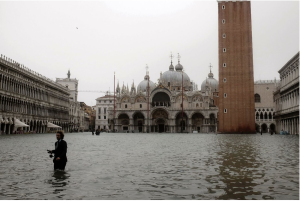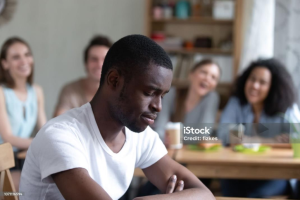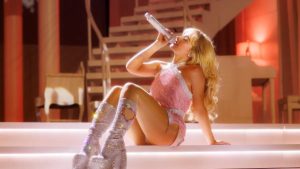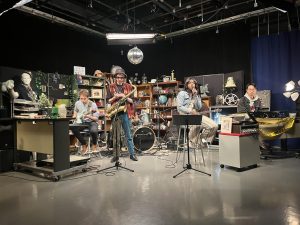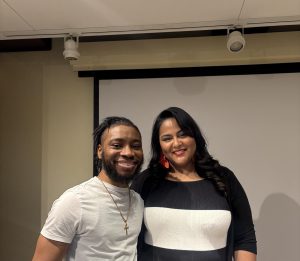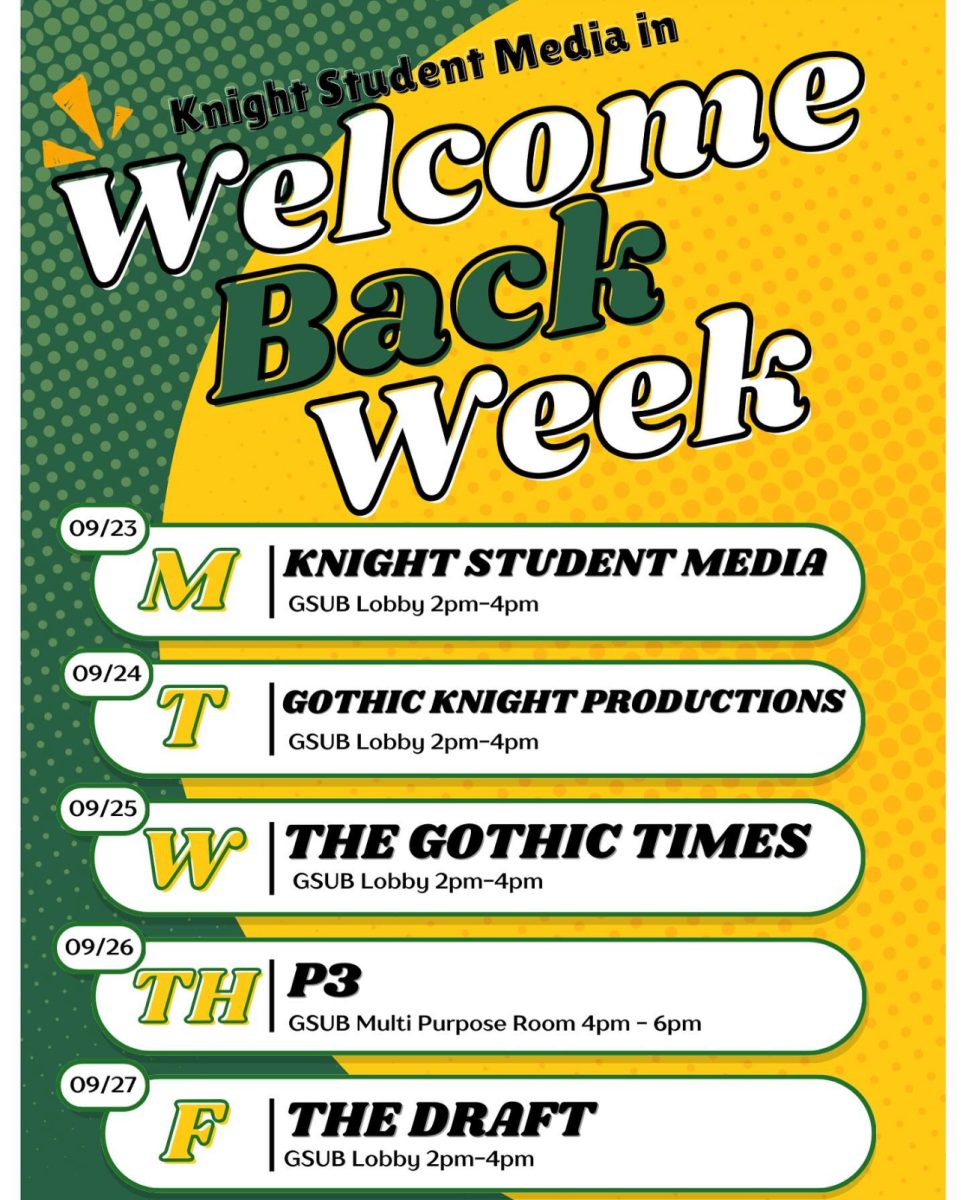An interview with Joel Katz
March 4, 2019
Joel Katz, a documentary filmmaker and tenure professor at NJCU, has been teaching various forms of media to students in the Media Arts department for 23 years. He has won many awards such as the Jerome Foundation Award for DEAR CARRY and the National Endowment for the Arts Media Production Award for JOHNNY & CLYDE in 1995. Last year, he went to a media conference in California organized by the Television Academy and learned a lot of new information about the Hollywood industry that he was willing to share with me in a interview.
Maxine Antoine: Can you tell me, from the day you got the idea or if you were invited to go to Cali, and to the day you got back, how was it like?
Joel Katz: I actually had the idea to go to that workshop a long time ago cause I was applied once before and was accepted and because of a whole bunch of circumstances with my schedule, I had to decline and that was probably six or seven years ago. But I’ve known about it for a while. I reapplied last year and was accepted and I was really happy. It was very informative and enjoyable. It was a little bit much more industry-oriented than my own personal orientation and filmmaking.
I come and work from a documentary and experimental arts background. It was LA which was more industry and TV focused. In a way that was great for me, it was sort of helping fill in the gaps in my knowledge, areas that I don’t get much exposure to by following my own instincts. Because I teach students who are interested in all sorts of things, the boarder the base of my background the better.
It was a bunch of different workshops where everything from producers, entertainment lawyers, editors, sound designers. It was a number of workshops and there were field trips such as going to a taping of the Jimmy Fallon show and “Dancing with the Stars.” We took a tour of the Warner Brothers’ facilities as well.
I was also with other college professors with different aspects of media theory, design, and production from all over the country. During the down time and the meals, it was interesting connecting with other colleagues. Part of being in academia is that in your day to day practice of teaching, you have exposure to what your immediate colleagues are doing, but you don’t always really know what other people do and how their curriculum and programs are built and driven so it was interesting to have the opportunity to connect with other media teachers. Surprisingly, usually when I am in those kinds of things, I expect a lot of colleagues to be from either the east or west coast, but interestingly there were a lot of people from the Midwest and from all over the country. Very few people were from the east coast and the west coast. They make a point in there about who they select, the selection pool of diversity, so there was a pretty diverse group of people in terms of race, gender etcetera. I’m a white man there, but not everybody else was.
MA: Okay, so how long did the trip last for?
JK: I had to arrive in LA on Sunday evening because the workshops started first thing Monday morning. I arrived Sunday evening, but I had to leave a little bit early. It ended after lunch on Friday, but I had to fly home Thursday night because of family obligations so I missed the closing dinner and one panel that was on Friday morning.
MA: And they accommodated everything?
JK: Yea they covered airfare, hotel, and the local transportation from the hotel to the various events. It was great.
MA: What workshops did you really like?
JK: I got different things from different ones. I couldn’t pinpoint it to one thing. If it was one workshop that I found interesting was the representation of reproductive rights and women’s health in television. I found it really interesting in the way that producing television and the way the content is handled really has implications about social responsibility, about how these issues are represented affects people and we’re talking about millions of audience members. Reproductive rights and women’s health are certainly represented a lot in television, but the level of depth and nuances that I thought went into the way those representations were constructed was interesting. Content wise, that was the most interesting panels.
There was a presentation by two of the producers of the Game of Thrones which was pretty interesting. I knew the basic content of the show, but it was a very global production. They shoot a lot in Ireland, Scandinavian countries, Bulgaria and Romania. They showed us, for example, their production schedule and of how they are managing all of the different shoots and crews around the world.
So just managing the logistics of something that massive was really interesting. There’s a panel on post-production and editing. It was closer to the content that I am familiar too, but I also learned some more interesting things there.
The tour of the Warner Brothers [lot], in a way, was very touristic. In each of the studios, there’s a big plaque outside that tells you which film and television series had been filmed in that studio. It’s amazing because you are looking at the whole history of classic Hollywood and many television programs. You just go by a studio and you see that a Bette Davis film was filmed in this one and “Friends” was filmed in that one which was pretty amazing. Also, the guy that toured us around was a production designer who has worked in Hollywood for over 40 years. He was a great storyteller and had a lot of insight to the workings of the industry and interestingly he was an openly gay man. Those were pretty interesting.
MA: What were you able to share with your students or add to the curriculum?
JK: There’s this one project that they have done based on the Holocaust project that Steven Spielberg did. He did this project to try to interview all living Holocaust survivors doing oral history interviews, and the Television Academy, the organization that ran the program, has done this project in the same model for the history of television. They started out by interviewing the star figures. They were trying to get the early pioneers of television from the late 40’s and 50’s before they died off. They’ve been dying off. But, they since expanded it to interview every type of person imaginable that is involved in television industry. Not only directors and actors, but its editors, make-up artists, set designers and everything they make now is compiled and archived in over 900 interviews.
MA: Wow.
JK: And it’s very searchable on a database by subject matter so I showed that to my students and I think it is a very great resource for anybody doing research about the history of television. That’s one of the things I shared with my students. Another thing I shared, for example, in the post-production panel, they said that in Hollywood, or in LA, by far the prominent editing software is Avid which didn’t surprise me that much, but it did surprise me how emphatic they were about it. Basically, in LA, if you want to get a foothold in the post world, you have to learn Avid. It’s essential. That was interesting and it also made me rethink my teaching curriculum because I used to teach Avid and then I stopped a number of years ago. It made me think I should start teaching it again.
I showed them photos of the interior of these recording stages. Sometimes when I demonstrate lighting to my classes,… I apologize for the fact that a lot of the lights we have are those 30 year-old, purple mold Richeson lights because of all of these contemporary lighting with the LED’s, but when we were at these studios, that is mostly what we saw. The same lights with the 30-40 year-old mold. That was kind of amusing. I got a shot of a grip on a ladder and someone spotting him, and I was like, “ Hey, I don’t teach you this for nothing! This is what they do in the real world.” So there were a lot of things like that that I was able to share. But, I think the thing that has the most impact is the internship program especially if some of our students get accepted to it.
MA: That sounds really cool. So, during your trip, did they ever mention any traditions in Hollywood that they are letting go of or are there anything new that they are adding on?
JK: In a number of different ways, yes, one was about diversity and gender which are things that are happening across the world. Even though when we were on these stages, most of the positions, especially the technical positions, most of the people you saw were white men. There’s just a consciousness and awareness that is changing and should change. That is not unique to Hollywood, but I thought that was healthy that they were very aware of that. The other thing is that I learned a new terminology. It’s what they call “over-the-top” television. It’s referring to the device that you would put on your TV to get a cable signal back in the day. It’s referring to the whole word of Netflix and Amazon being the giants of that and they’re a lot of other smaller players. But there is a lot of talk about how good the Hollywood studio system is very different then it used to be and the distribution of income and financing has changed a lot, especially over the last 10 years. Now Martin Scorsese has directed a film for Netflix. Amazon, for example, has become just as prestigious, in the world of production, as MGM once was. The products produced by Netflix and Amazon are no longer seen as secondary player of inferior quality products. They’re are on equal footing with anything coming out of the movie studios and are able to attract the quality of talent, in terms of actors and directors, that’s equivalent to what’s coming out of the studio system.
MA: Okay. So, is there anything that you learned over at Cali that you think both the younger and older generations should be prepared for?
JK: I couldn’t nail it down to one thing. One thing that has stuck with me was in the panel, it was these two female executives from the Game of Thrones. One of my colleagues had asked them, “If a student tells me I wanna be you in twenty years, I want to be a television producer, what should I do? How should I answer my student?” The response surprised me. She said, “Read a lot and draw a lot.” Which is such, in both ways, antiquarium ideas that you think that somebody would say that you would have to be aware of global markets, take business classes, or do this and that technology, but what she said was draw, and what she meant was actual pencil in hand on page type of drawing, and read novels, plays, and be a veracious consumer and producer in the arts. That was pretty interesting to me and when I had shared that with my students, that it is not about economy or money or technology. It’s really [having] a great appreciation of the arts and storytelling. Also, I guess the other message is that if you are a woman and/or from a minority group, that you should not, quote on quote, “be deterred from getting a foothold in the industry.” It’s ever changing.
This interview was originally printed in The Gothic Times, Issue 5 of Spring 2019.




